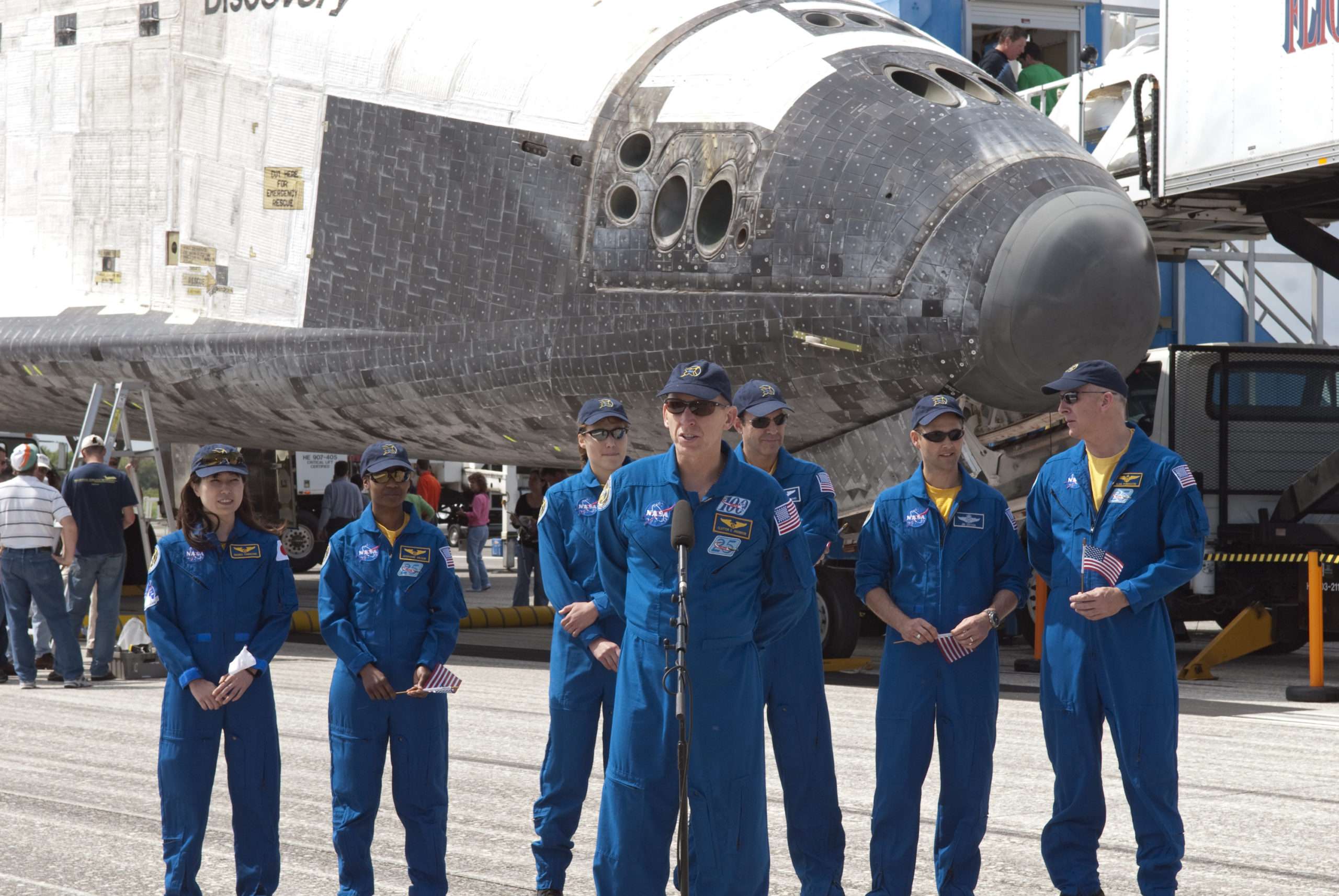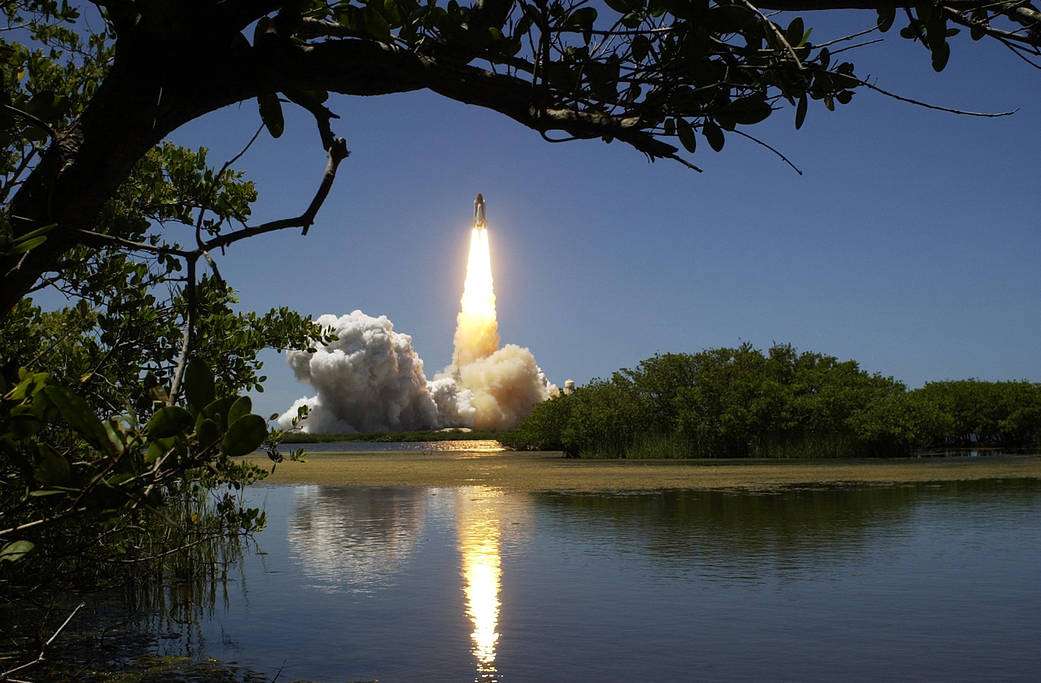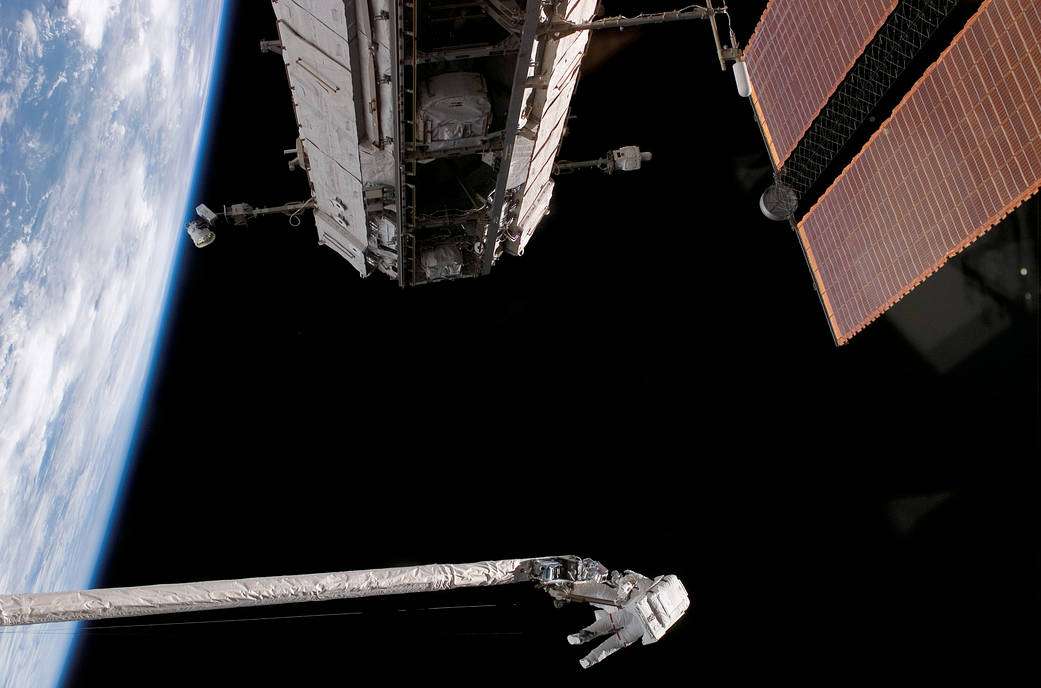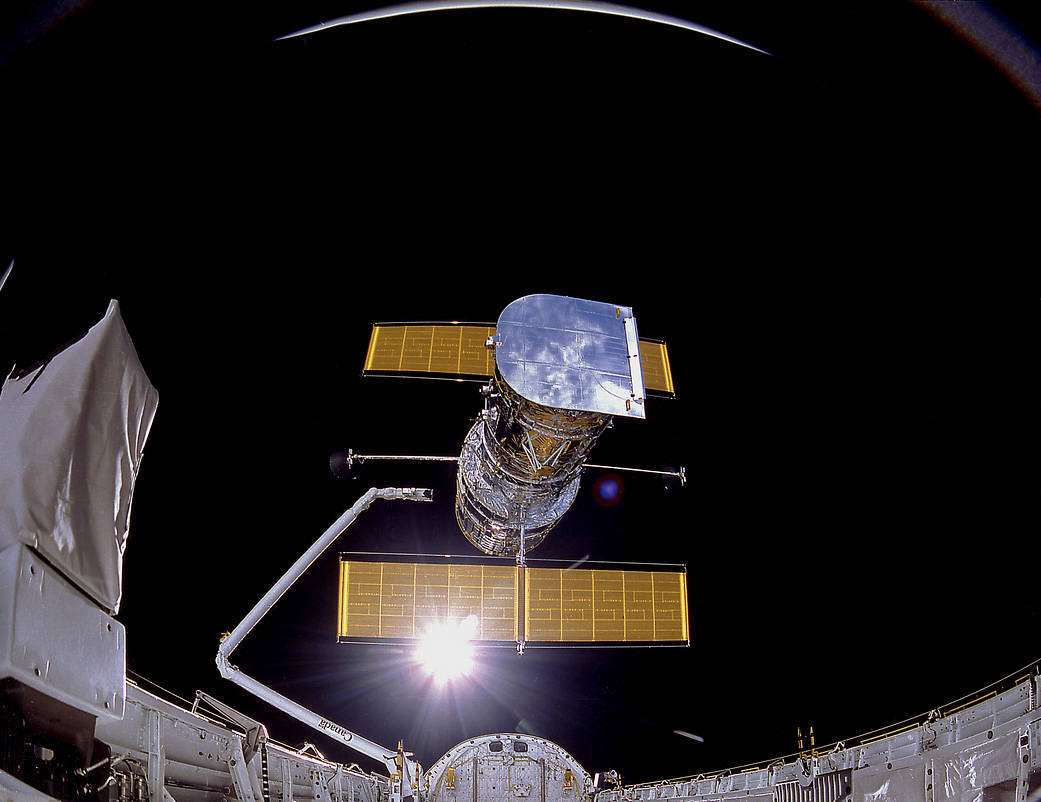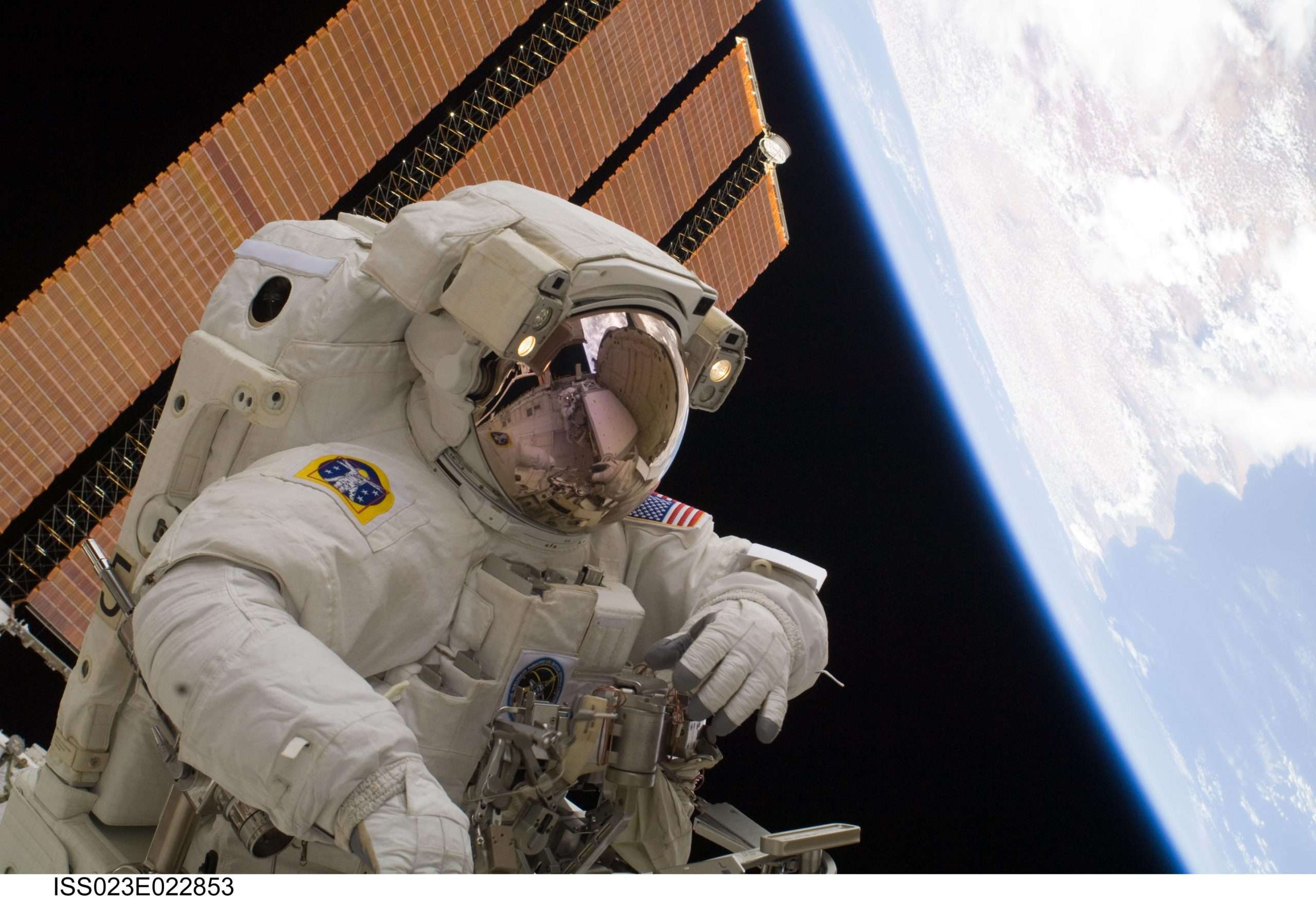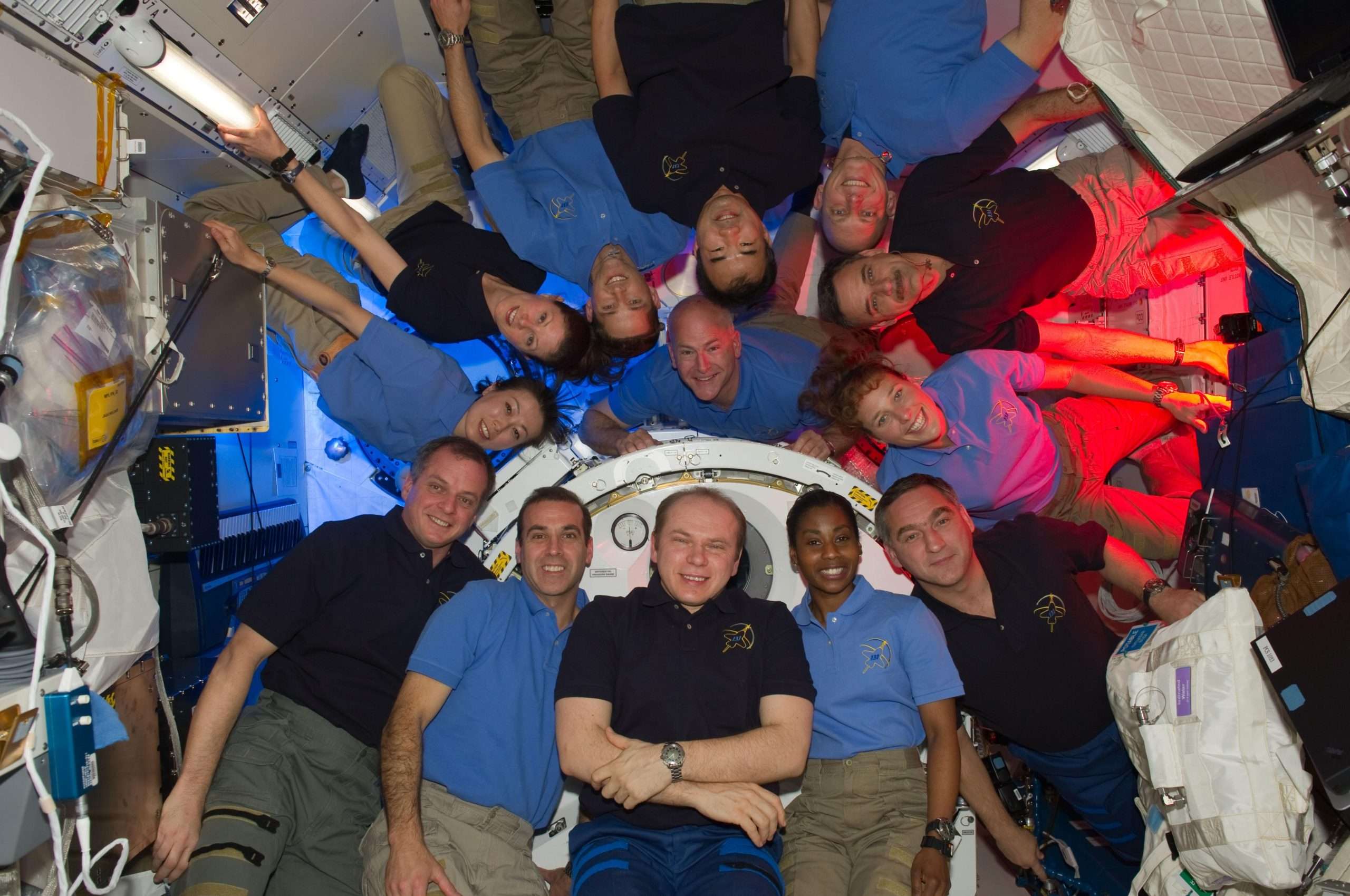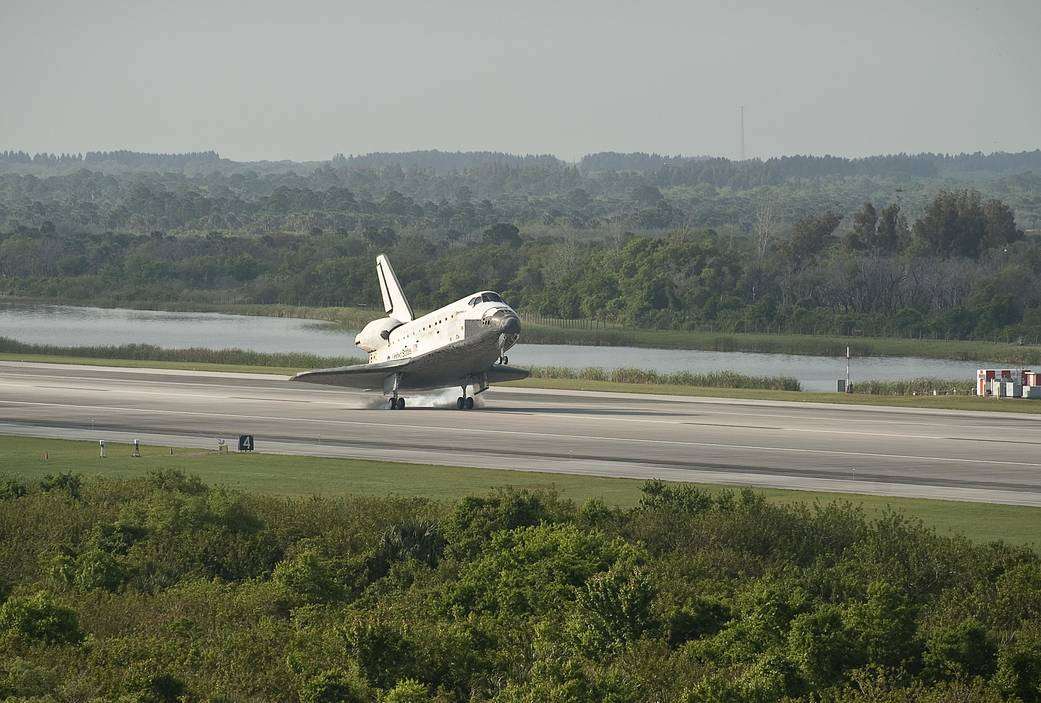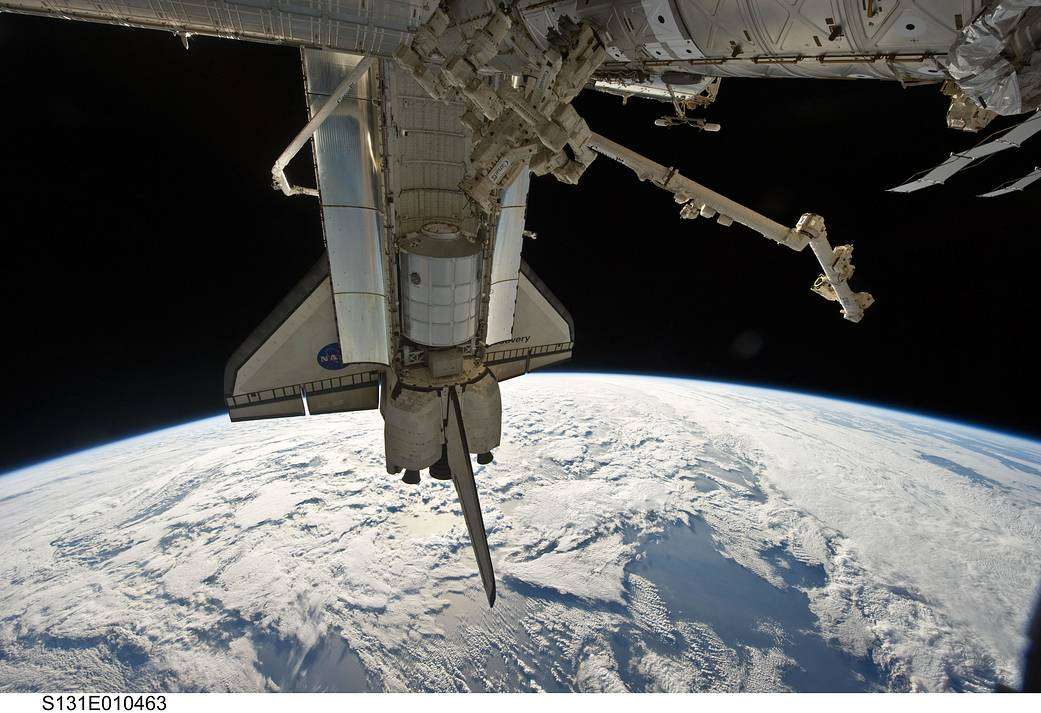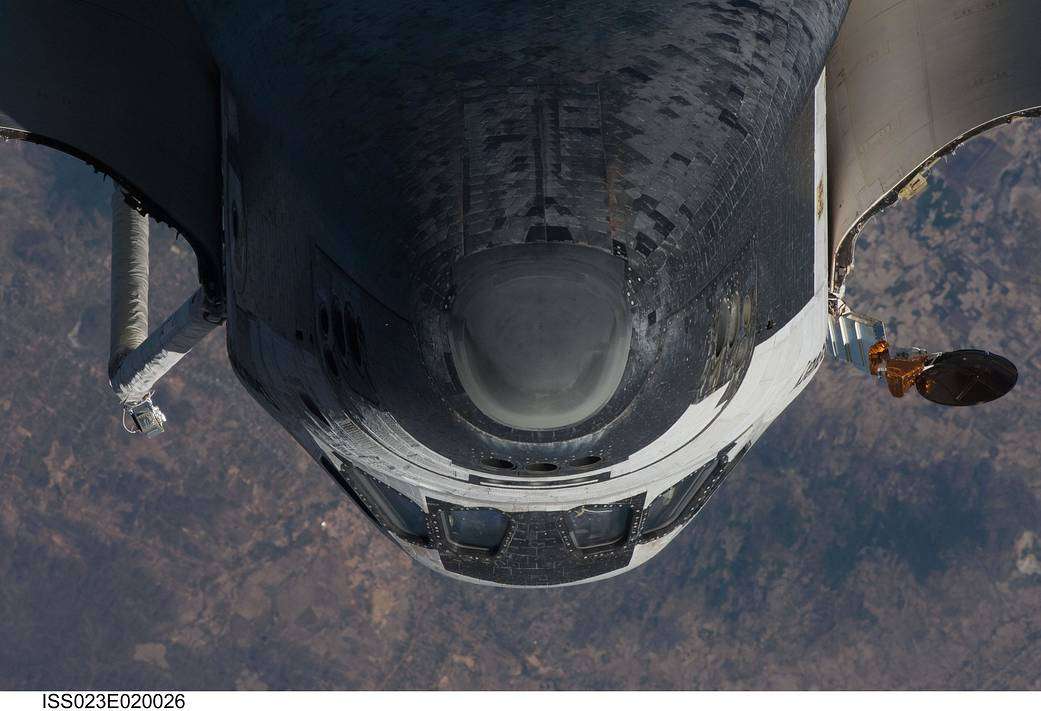Space shuttle Discovery lit up Florida’s Space Coast sky about 45 minutes before sunrise Monday with a 6:21 a.m. EDT launch from NASA’s Kennedy Space Center. The launch began a 13-day flight to the International Space Station and the second of five shuttle missions planned for 2010.
Discovery is scheduled to dock to the space station at 3:44 a.m. on Wednesday, April 7. The shuttle will deliver science experiments, equipment and supplies to the station. The flight will include three spacewalks to switch out a gyroscope on the station’s truss, or backbone, install a spare ammonia storage tank, and retrieve a Japanese experiment from the station’s exterior.
Inside the shuttle’s cargo bay is the multi-purpose logistics module Leonardo, a pressurized “moving van” that will be attached to the station temporarily on April 7 and returned to the shuttle’s cargo bay Thursday, April 15. The module is filled with supplies, new crew sleeping quarters and science racks that will be transferred to the station’s laboratories. This is the final compliment of laboratory facilities that will complete the station’s overall research capabilities.
“The crew of STS-131 is really honored to represent the thousands of dedicated people that make up the entire NASA, JAXA and contractor workforces,” Commander Alan Poindexter said shortly before liftoff.
Poindexter’s fellow crew members are Pilot Jim Dutton and Mission Specialists Rick Mastracchio, Dottie Metcalf-Lindenburger, Stephanie Wilson, Clay Anderson and Japan Aerospace Exploration Agency astronaut Naoko Yamazaki. Dutton, Lindenburger and Yamazaki are making their first spaceflights. These three astronauts are the last rookies that will fly aboard the shuttle before its planned retirement.
Lindenburger will be the last of three teachers selected as mission specialists in the 2004 Educator-Astronaut class to fly on the shuttle. The educational activities on the STS-131 mission will focus on robotics and promoting careers in science, technology, engineering and math. For NASA’s teacher and student resources and activities related to robotics, visit:
http://www.nasa.gov/education/robotics
CAPE CANAVERAL, Fla.


